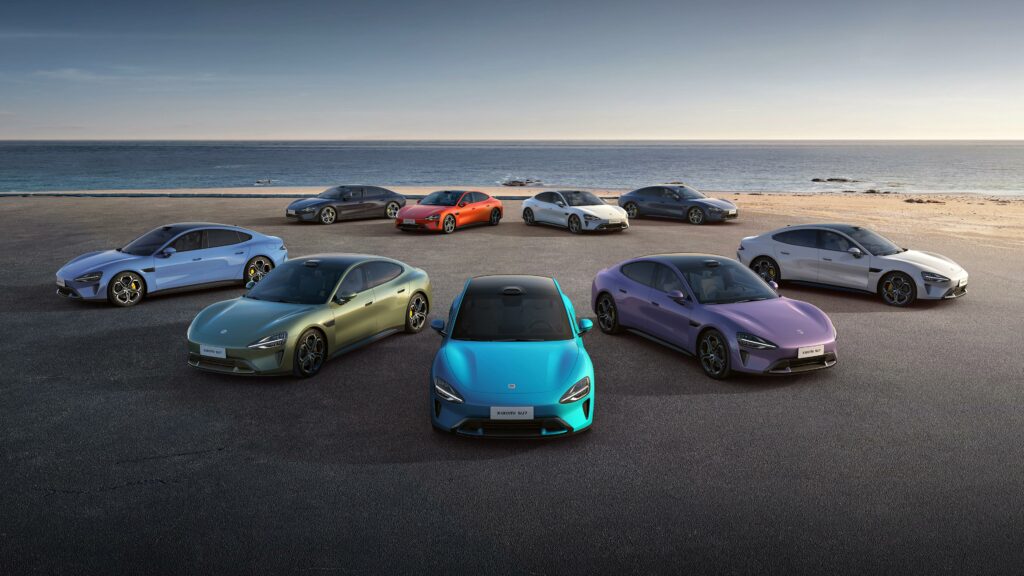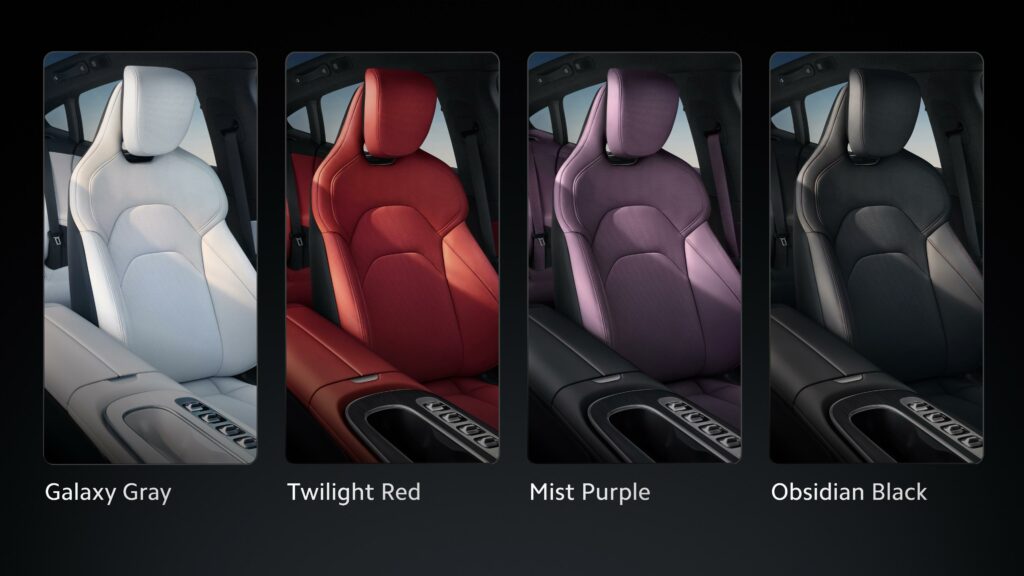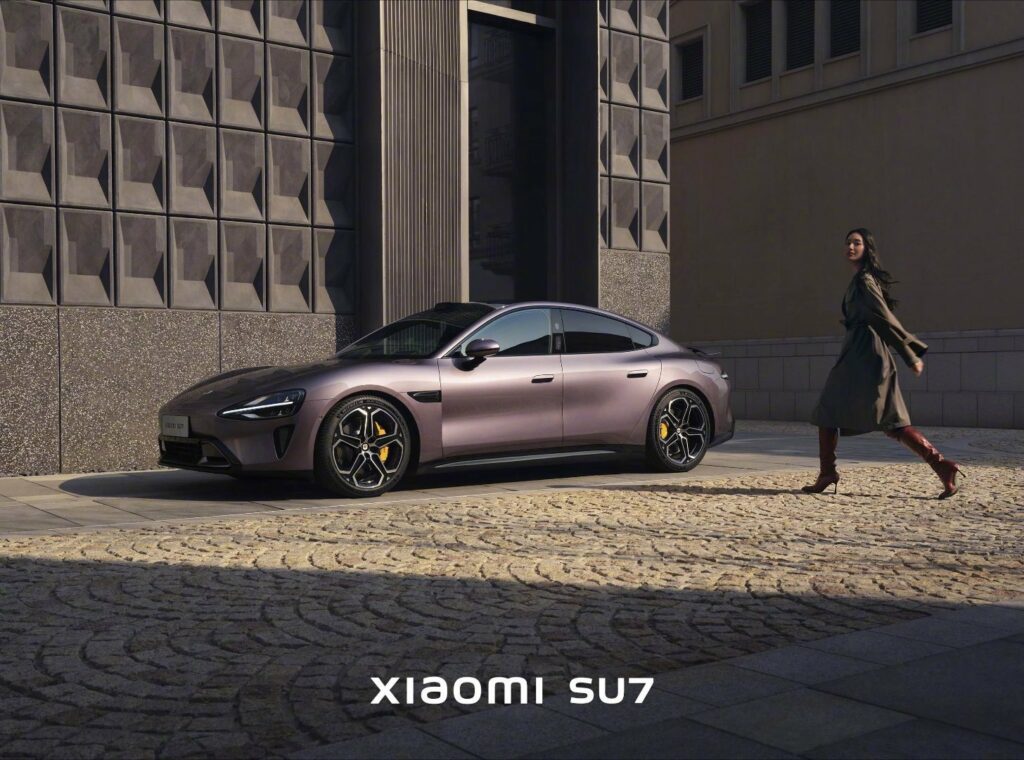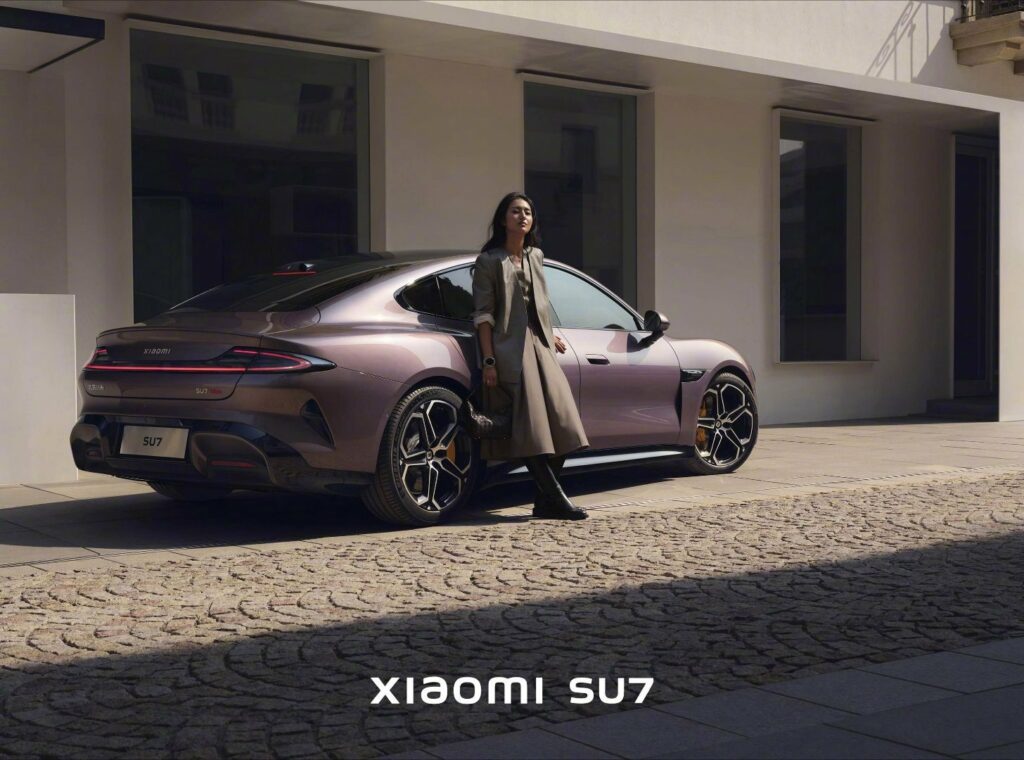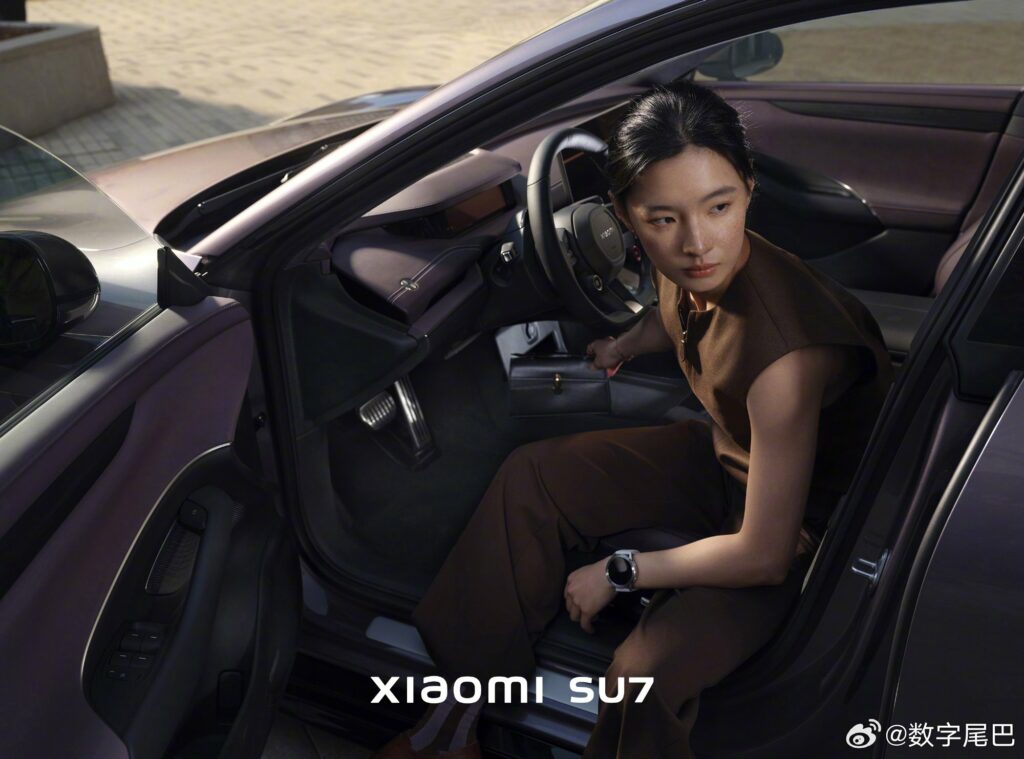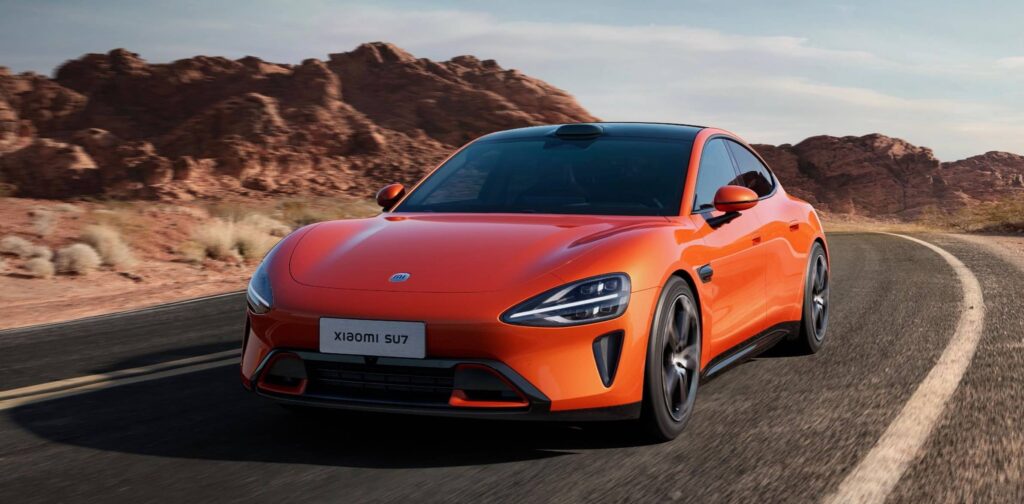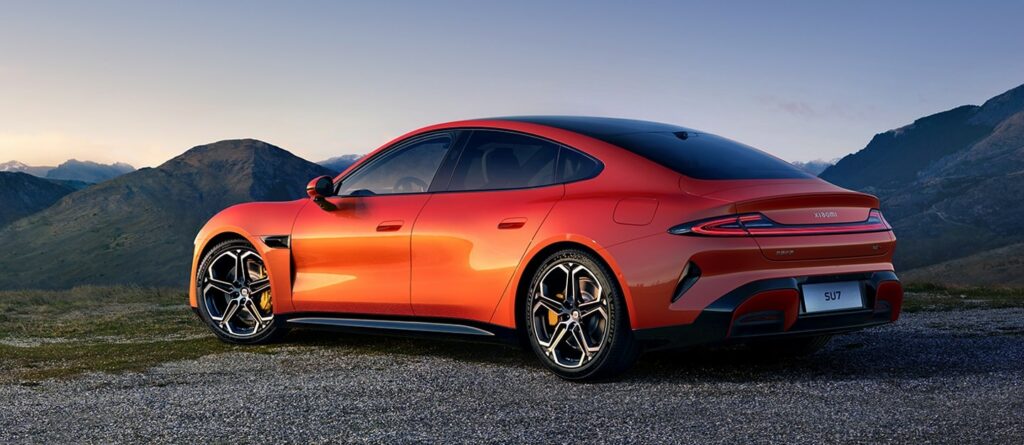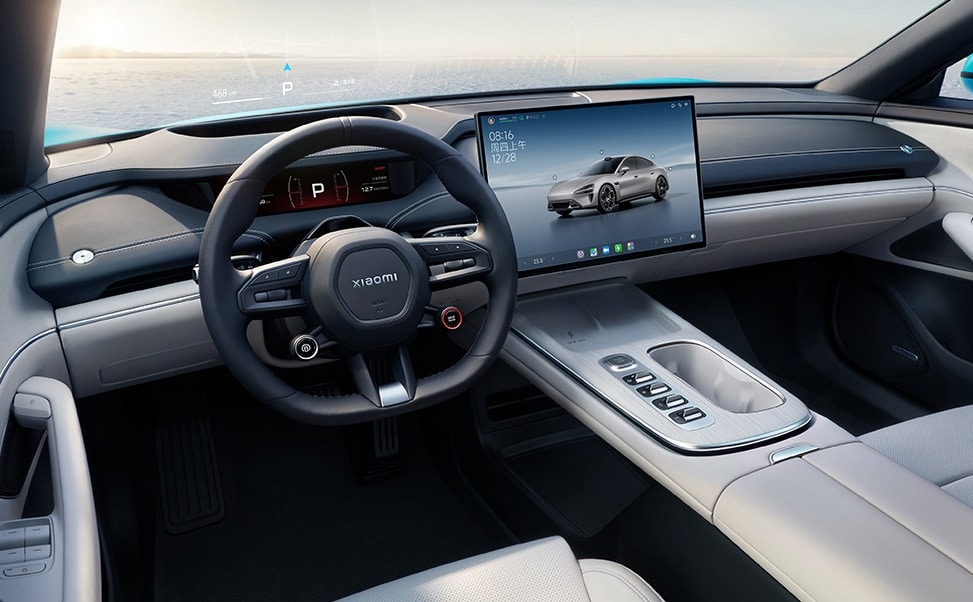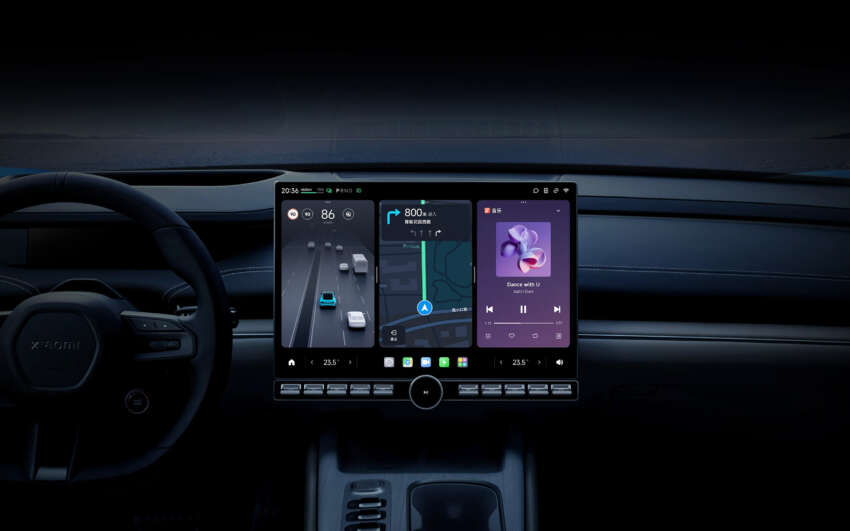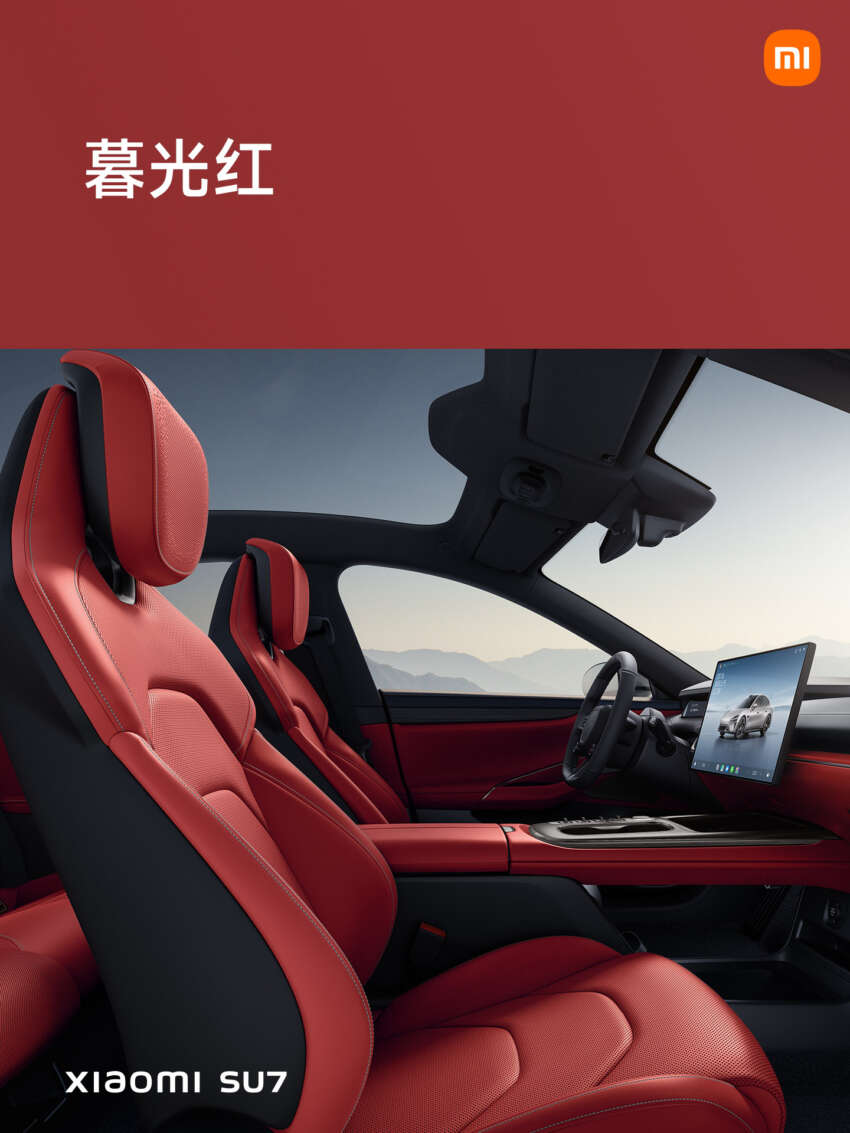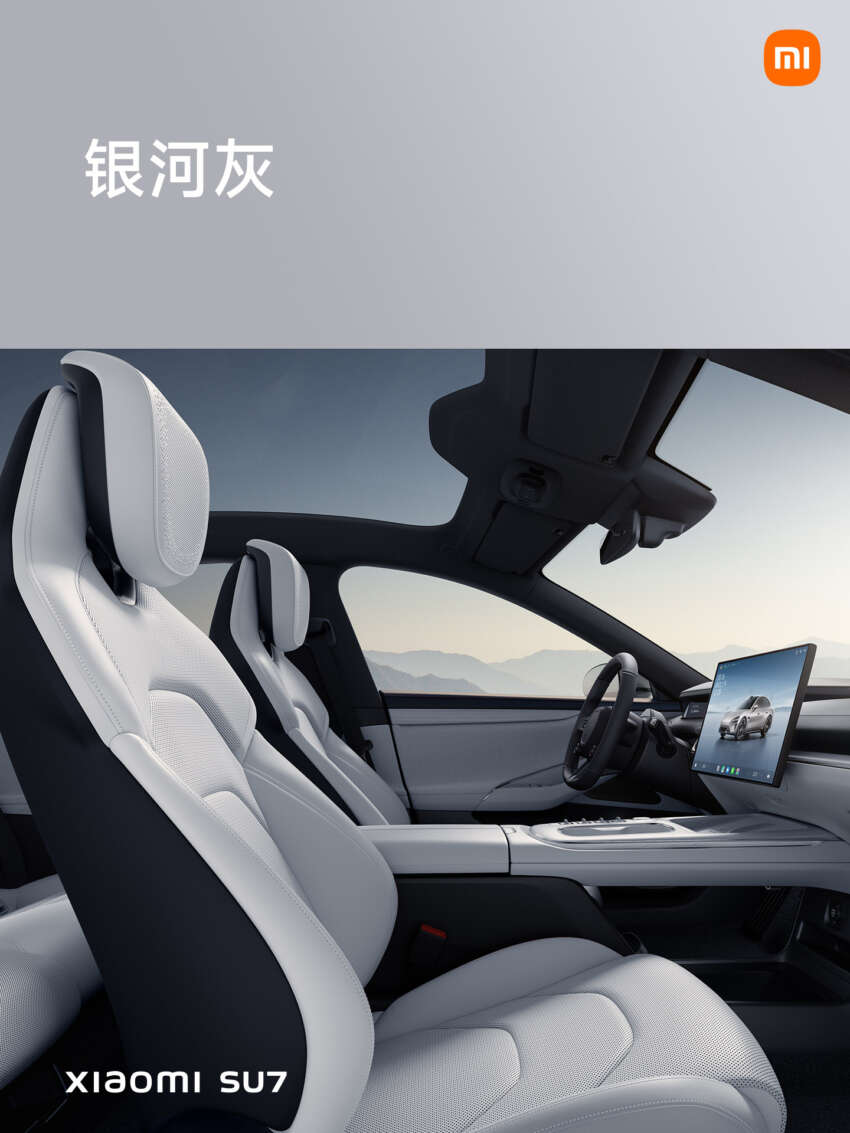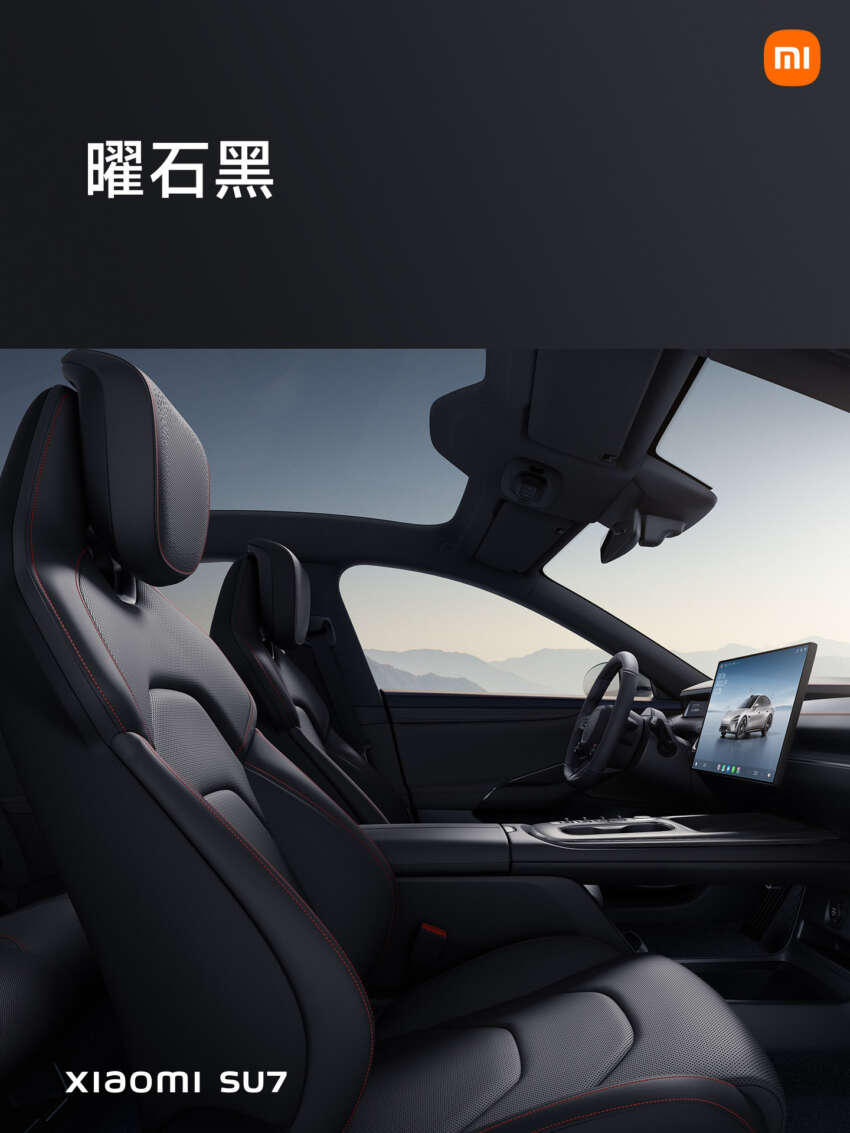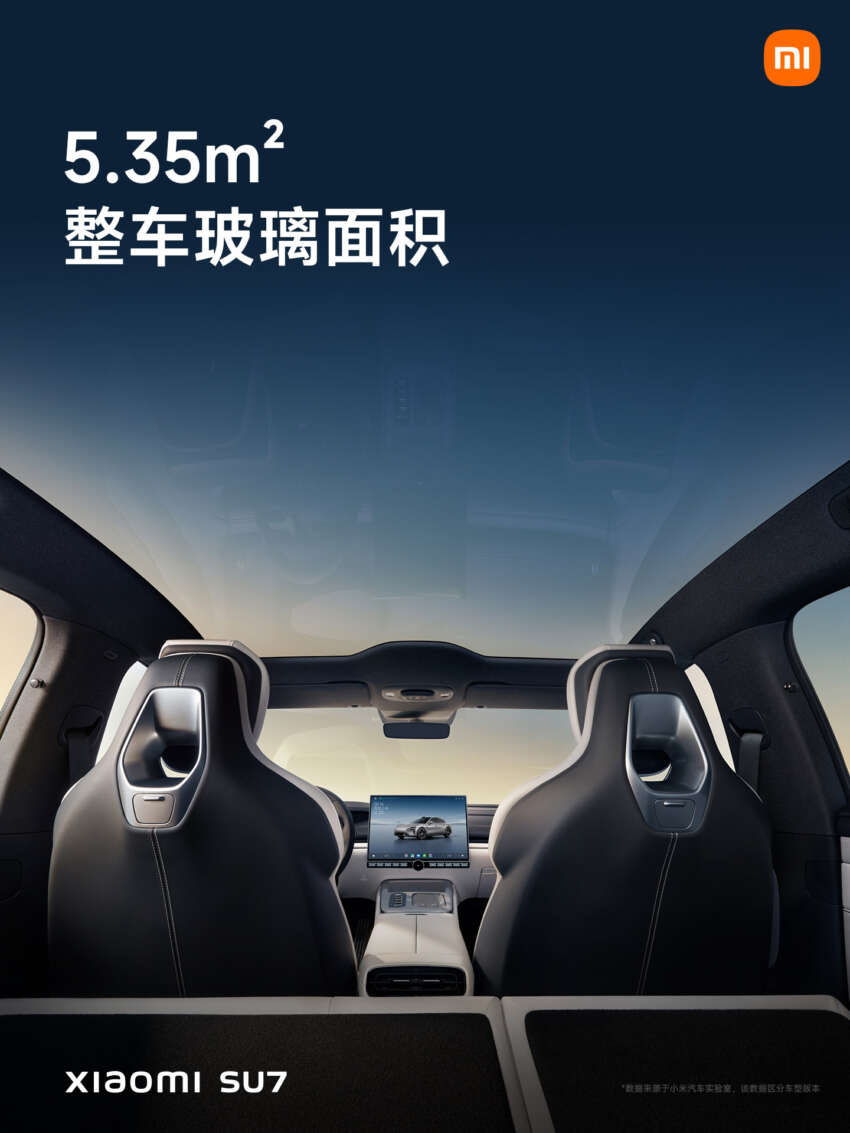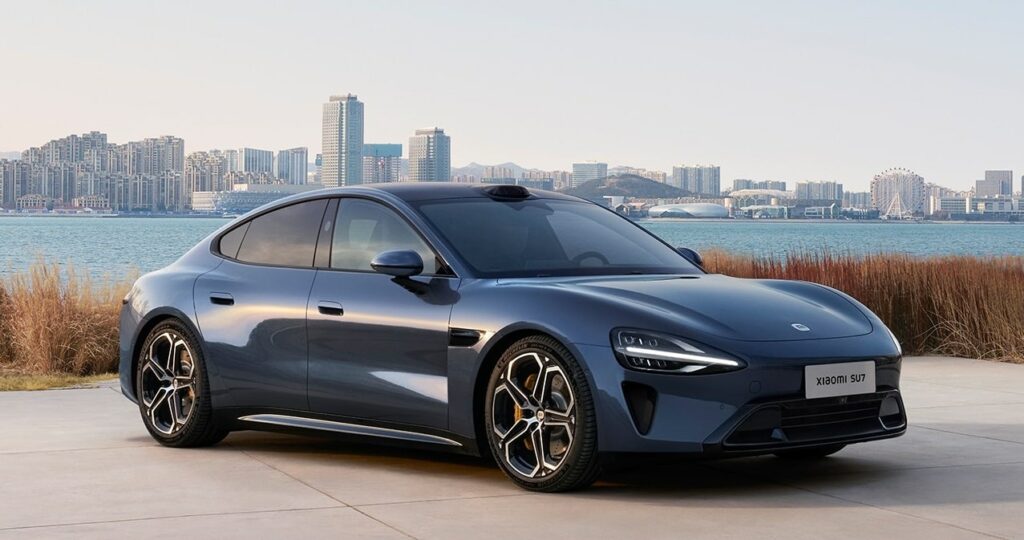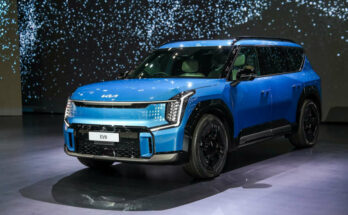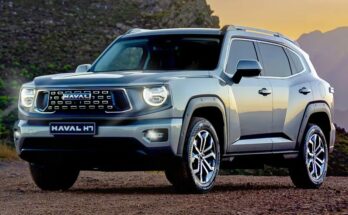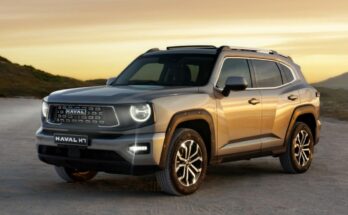Xiaomi SU7 has been formally launched in China. Available in three versions, the SU7 is priced between 215,900 – 299,900 yuan ($29,900 – $41,500). The starting price of the SU7 is 215,900 yuan ($29,900), which is $4,100 less than the starting price of the Tesla Model 3 base model, which is 245,900 yuan ($34,000) in the Chinese market.
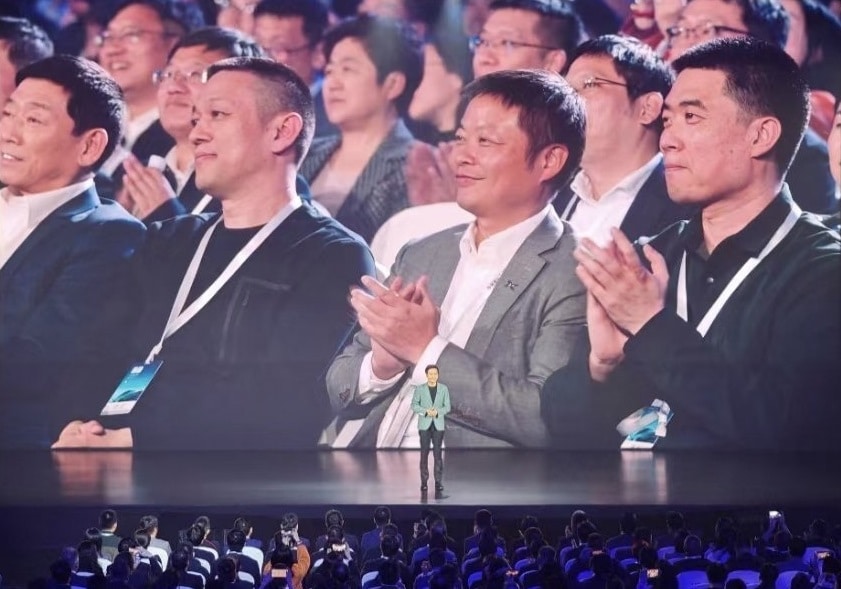
The CEO of Xiaomi, Lei Jun, commenced the launch presentation by extending a warm greeting to the audience members which also included its rivals, Li Xiang, CEO of Li Auto, He Xiaopeng, chairman of Xpeng, and William Li, CEO of Nio. Jun expressed gratitude, saying:
“They all gave us many suggestions in the past years to avoid traps on the road during the EV development.”
Furthermore, the SU7 was praised on stage by Chris Bangle, the former Chief of Design for the BMW Group. He was named by Xiaomi among the 10 most renowned automobile designers in the world for his work on the Rolls-Royce, BMW, and Mini brands. Bangle, who currently works as a consultant for Xiaomi Auto Design, said while speaking at the presentation:
“I was impressed by the SU7’s power. It had a rocket-ship-like feeling. Having such a car in Europe would be fantastic.”
It’s hardly surprising that a BMW veteran has joined Xiaomi Auto, given that the SU7 was designed by a team led by Li Tianyuan, Xiaomi’s Head of Design. He joined the company from BMW, where he was in charge of the BMW i Vision Circular concept, BMW iX, and the new 7 Series. Furthermore, James Qiu, who formerly worked for Mercedes-Benz on the Vision EQXX design, is the external designer at Xiaomi.
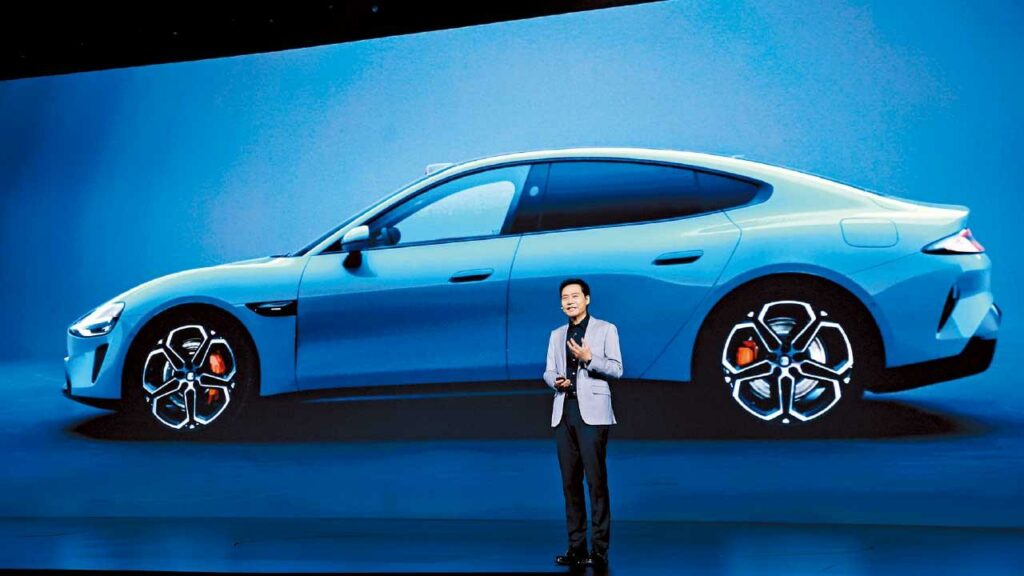
Lei Jun went on to reveal the results supporting his earlier assertion that 1,500 engineers work on the company’s smart driving research and development team. Xiaomi SU7 will have two advanced driver-assistance system (ADAS) options:
- Xiaomi Pilot Pro
- Based on pure vision, like Tesla
- Nvidia Drive Orin chip with 254 tops computing power
- Xiaomi Pilot Max
- Pure vision + lidar
- The city NOA pilot-assisted driving feature will begin testing in April and will be available in 10 cities by May. It will then go live in China.
- two Nvidia Drive Orin chips with 508 tops
The SU7 sits on Xiaomi’s Modena platform, and measures 4,997/1,963/1,455 mm, with a wheelbase of 3,000 mm. The car has a sizeable 105-liter frunk and boot space with 517 liters. Inside the car, it offers a fridge with 4.7 liters of space, good enough for 6 cans of Coke. Designers put lots of thought into storage space, and SU7 features many smart compartments for laptops or smartphones Xiaomi SU7 also supports Apple CarPlay and iPad connectivity.
The SU7 exterior and interior color options
The Xiaomi SU7 electric sedan comes with 9 exterior colors and 4 interior color choices, and is available in three powertrain variants:
SU7 Standard 215,900 yuan ($29,900)
- 73.6 kWh BYD’s LFP Blade battery
- 700 km CLTC range
- single motor, RWD, 220 kW, 400 Nm torque
- 0 to 100 km/h in 5.28 seconds and has a top speed of 210 km/h
- Xiaomi Pilot Pro ADAS
- 400V architecture (486V)
- can charge 350 km in 15 minutes
Lei Jun commented that at this price Xiaomi is selling this variant at a loss, and hopes they can count on the support of their fans.
Related: Xiaomi CEO Drove an SU7 from Beijing to Shanghai
SU7 Pro for 245,900 yuan ($34,000) – same as the Tesla Model 3 in China
- 94.3 kWh CATL Shenxing battery
- 830 km CLTC range
- 400V architecture (486V)
- single motor, RWD, 220 kW, 400 Nm torque
SU7 Max Performance version – 299,900 yuan ($41,500)
- 101 kWh CATL Qilin
- 800 km CLTC range
- 0-100km/h acceleration in 2.78 seconds, 265 km/h top speed
- Xiaomi Pilot Max ADAS
- 800V architecture (871V)
- can charge 510 km range in 15 minutes
- AWD, dual motors with a combined output of 495 kW (663 hp), 838 Nm torque
The deliveries of the Standard and Max versions will start in late April and the Pro version by the end of May. Xiaomi announced that 4 minutes after the launch, the car received 10,000 firm orders, 7 minutes after 20,000 orders, and in 27 minutes, the order book reached 50,000 firm orders. The Xiaomi SU7 will compete with several all-electric sedans in the Chinese market including, but not limited to Tesla Model 3, BYD Seal, BYD Han, Deepal SL03, Xpeng P7i, and Nio ET5.
Source: CarNewsChina

A computer animation professional with over 23 years of industry experience having served in leading organizations, TV channels & production facilities in Pakistan. An avid car enthusiast and petrolhead with an affection to deliver quality content to help shape opinions. Formerly written for PakWheels as well as major publications including Dawn. Founder of CarSpiritPK.com

